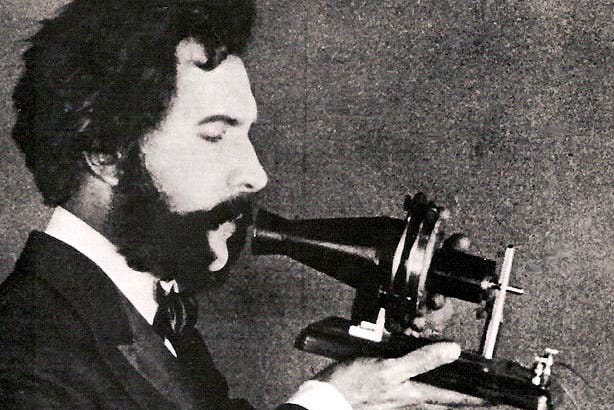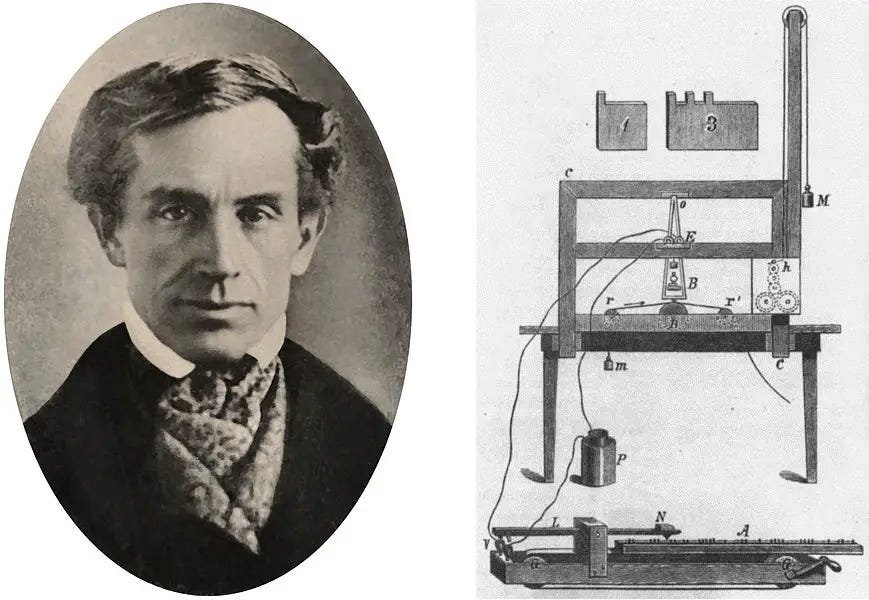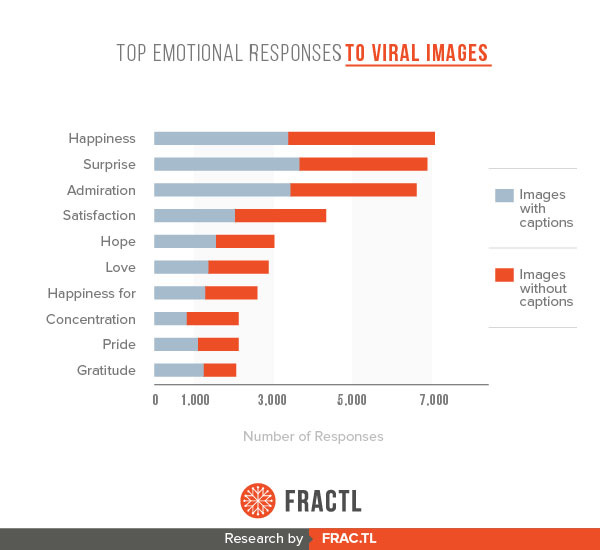Email Times Best Seller List
Context isn’t just king—it’s all there is. We learn about informational liquidity, segmenting audiences, and why individualization is the future of the internet. ℹ️🌊🎯
The Start of the Internet
Today, there are two billion websites on the Internet competing for our attention. Back in 1993, there were only 623 websites in the entire world. That was roughly 4 years after Tim Berners-Lee 🤩 invented the World Wide Web protocol.
But that wasn’t the start of the Internet.
The URL Internet was built on the backbone of the Voice Internet. The Voice Internet (telephone network) was invented by Alexander Graham Bell 🤩 who strung the first permanent outdoor wire in 1877.
But that wasn’t the start of the Internet.
Before humans could modulate sounds over copper wires, we could manually start and stop the connection between endpoints. Samuel Morse 🤩 invented the Telegraph Internet in 1844 and by 1866 humans were laying cables across the bottom of the Atlantic Ocean from wooden ships.
But that wasn’t the start of the Internet.
The Semaphore Internet began around 1790 as a series of hilltop stations with movable signs and powerful telescopes. They only worked line-of-sight, just like smoke signals.
But that wasn’t the start of the Internet.
In 1737, Benjamin Franklin 🤩 opened the first post office in America. At the time, it took more than a month for a letter to travel from Philadelphia to New York on the Postal Internet. Franklin invested heavily in road cutting and overnight riders to reduce that delivery time down to 24 hours.
Benjamin Franklin may have moved more information around the world than anyone ever before him. Alexis de Tocqueville said our Postal Internet was “the only entity capable of circulating the information essential to sustain America’s bold experiment with democracy.” 🇺🇸
But that wasn’t the start of the Internet.
Before English, before Latin, and before Cuneiform tablets, we have had the Aural Internet. This is literally the word-of-mouth traveling from person to person to person, the best messages slowly oozing their way across vast distances.
The start of the Internet was between the first two humans who learned to communicate. The Internet has been here as long as we have been here. The Internet will be here as long as we are here. Like beta GPT-3 said, “Mankind in both its slumbering and awakened state is an enormous machine.” 🤯
In this final story of chapter 5, Attention Economics, I want to explain why I published this book in an unusual way. Instead of selling these stories through a book publisher on Amazon, I released them on a private social network, which is owned by a 501(c)3 nonprofit called the Fundamental Frequency Foundation.
Reason #1 - I Care About You
Several years ago, I cohosted a party during South-by-Southwest with tech expert, Azeem Azhar, for the readers of the
Exponential View by Azeem Azhar
. The party was fun with loads of smart people. Azeem may have the smartest (and most powerful) subscriber base on Earth right now.
After the party, a few of us went out for dinner and I told them about all the science experiments I performed on myself and my kids, and how we lived an entire year with only one carry-on suitcase each. Azeem asked if I planned on writing up the results of my research and I said no—it was just for my own lulz (impish curiosity). Then he asked, “How much money do you think you’ve invested in all that research?”
I told him it was well over a million dollars.
He said, “Stuart, think about all the other scientists out there who will never have access to your kind of personal research budget. Don’t you think it would be irresponsible of you if you didn’t tell the world what you learned?”
I gave Azeem all kinds of excuses, but I knew right away that I would have to lock myself in a room one day to write this book. I am first and foremost an inventor (which is why I hate documentation), so I don’t want any costs to limit access to my work. The research for this book cost me:
$1.5 million dollars
1,100 nights on the road
15,000 hours of reading
5,000 hours of lectures
1,800 hours of writing
And I’m willing to tell you everything I learned for free in 10-15 hours. That’s roughly how long it will take you to read 170,000 words.
I lived most of my childhood below the poverty line and education was my way out of those circumstances. I deeply care about other poor people and their diminishing opportunities in this world, so I always want this book to be freely available to anyone willing to learn.
Reason #2 - Amazon Doesn’t Pay Anyway
When you buy a book on Amazon for $15, Jeff Bezos and the book publisher will only send the author about $2.50. Look at J.K. Rowling—she should be way richer than she is. Rowling sold more than 500 million Harry Potter books worldwide, but she’s barely a billionaire. That’s messed up. How could she not make more than $2 per book?
So if you bought this book on Amazon, the publishing industry would keep 83.4% of the money. That’s a huge tax. Instead, I would like you to donate $15 to the Fundamental Frequency Foundation. Your support ensures our content is always freely available and allows us to invest in new ways to communicate this message in the future. If these stories helped you in any way, please pay it forward.
gifts are tax deductible.
Donate via Zeffy (you pay the fees):
Donate via Apple Pay, Google Pay, Credit Card, Link, and Stripe (we pay the fees):
Donate Bitcoin: bc1qsn9xrd3yrfg4zqydc5aqns3uwvhrdqay8d7vht
Or upgrade to a paid Substack subscription (we pay 15-20%):
If you invested in our mission, THANK YOU, Fundamental Frequency is now “our” foundation. Please tell all your friends about your newest investment on TikTok, Twitter, Threads, Instagram, Facebook, LinkedIn, YouTube, WeChat, Weibo, and QZone.
Reason #3 - Our Nonprofit Owns My Copyrights
In the age of artificial intelligence, this may be more important than ever. By retaining copyright, our foundation will be the only organization licensed to train generative-ai on this content. Creating our own custom GPT will allows us to generate thousands of hours of original content:
We will use generative-ai to transform our content into thousands of short video clips for distribution on YouTube, TikTok, Weibo, and Instagram. Each of these digital assets will “fish” for new audience. Indefinitely.
We will use generative-ai to transform our content into thousands of automated blogposts on Reddit, 𝕏, Threads, LinkedIn, Facebook, Quora, and whatever social media people are consuming 1000 years from now.
As generative-ai advances, we will transform our content into Hollywood movies, video games, and kid’s television shows in the constant search for additional audience.
These digital assets are our weapons in The War for Human Attention.
Copyrights may become irrelevant in the age of generative-ai, which means anyone on the Internet could train an AI to be me by web scraping funfreq.com. So our foundation also has access to my private documents as well, which creates a competitive advantage within the “knowledge marketplace”. And when I die, I’m going to leave almost all my assets and intellectual property to our foundation so that it can keep pushing The Theory of Every Uncertainty long after I’m gone. ✌️
Reason #4 - High Informational Liquidity
Publishing this book on a private social network gives our content an “Informational Liquidity” that physical books, Audible books, and Kindle books just can’t match. Book publishers are only interested in those formats because they tightly control distribution to ensure each reader pays for the product. 🤑
The tradeoff of those formats is that they are incredibly difficult to share. Audible and Kindle can only be shared with other members in a family plan. Physical books can only be shared with one other person on Earth at a time. By distributing these stories on Substack, even the people who can’t afford to buy the book can still afford to share it. We would rather help more people than make more money.
High informational liquidity is also the reason I published this book as a series of essays that can be read in any order. Most people don’t have time to read an entire book, so the 15-min essay format enables our content to reach a much wider total audience.
To create the most liquidity, I break each essay into multiple sections so busy people can quickly skim the story to find the topics that interest them. That’s also why I bold a simple word or phrase within each paragraph—so skimming eyes can quickly flit their way through the text. There are also plenty of original quotes that are even easier to consume and repeat. They are always followed by share buttons like this.
These original quotes are intended to:
make you laugh out loud 😆
surprise you with new information that may be critical to your future 😳
offend you so badly that you “clutch your pearls” 🤬
That’s because those emotions create the most virality on the Internet. Check out this research by Fractl to learn more about the emotions that cause us to tap our share buttons most often. Tap on the chart to read more.
Ideally, our readers will share those snarky quotes on Twitter and Threads because almost all news starts on there these days. Their low character limits (no pun intended) create the lowest “status update friction” in all of social media, which means news unfolds much faster there than anywhere else. Here are a few recent stats that demonstrate just how important Twitter is to the news industry:
More than 80% of young journalists rely on Twitter for their job.
94% of people on Twitter express interest in current events
85% of people on Twitter watch, read, or listen to the news at least once a day
83% of people on Twitter Tweet about news
3 in 4 people who come to Twitter for news do so at least once a day
75% of people who come to Twitter for news follow news about politics and current events on Twitter
In the first 6.5 months of 2022, there were 4.6B Tweets about news in the US (#1) and 10.4B Tweets about news globally (#2)
If you have followers on Twitter or Threads, please help me start as many intellectual debates as you can as you read. Some of your intellectual debates will turn into “hot takes” and reviews on other microblogs. Some of those microblogs will get expanded into features on major publications. Some of those major publications will help us acquire millions of eyeballs that we could never afford to acquire.
I don’t care if people on Twitter think I’m crazy-smart or crazy-crazy, we just need them arguing about it with the hashtag #funfreq.com 🤣
Reason #5 - The Medium Is the Message
Not having a book publisher creates the biggest challenge for us. If we want to distribute enough copies of this book to qualify as a “New York Times Best Seller” without (buying) help from The New York Times, Amazon, and a book publisher—then we need your help.
As you read these stories, share them with as many people as you can, preferably by text message or email. Remember, when you share one of these stories on Facebook, only 4.5% of your total audience will even see your post. That’s the average organic reach on Facebook. With normal click through rates, only about 2% of your 4.5% will investigate further—so 0.09% of your Facebook friends will attempt to read our story.
Conversely, when you share a story to your friends by email, almost all those links get opened. Remember how the medium is the message? Well, the likelihood that any person will start reading any of our stories is most strongly influenced by their relationship with the person who shared them. An email between friends is the medium, but an email between friends is also the message—those people know you care about them.
The absolute best way to share these stories is by text message. Even in business marketing, links in SMS get opened 20-35% of the time while links in email only get opened 2-10% of the time.
Reason #6 - Knowing Our Audience
Amazon computers know everything about the people who buy books on their platform, but they don't share that information with the authors. For example, author Robert Greene has a best seller on Amazon right now called The 48 Laws of Power. Amazon knows the email address of everyone who bought that book plus all the other books they’ve purchased. On Kindle and Audible, Amazon knows how fast each person read The 48 Laws of Power, or where they gave up. They even know if a reader shared the book with other people. All that information is incredibly valuable to Robert Greene, but Amazon is never going to share that with him.
By publishing these stories on a private social network, we get to see:
which stories are read most often
which stories are shared most often
which links are clicked most often
which videos are watched most often
which stories generate the most financial support
which stories generate the most new subscribers
We convert a small percentage of our readers into monthly subscribers that we can talk to for free. So when we publish new books and stories in the future, we already have a core audience of readers to learn from.
Reason #7 - Segmenting Our Audience
One of the biggest benefits of a private social network is that it will allow us to “segment our audience” in a way that books never will.
Segmenting the audience is making sure the right message gets delivered to the right person and it’s a major problem everywhere, even on social media. For example, Kim Kardashian has 350M followers on Instagram. She probably harvests more human attention from all her platforms each week than CNN. Some of her Instagram followers are there because of her reality show, some are there for her fashion, and some are there because she’s a smoking hot mom. The problem for Kim is that all those people are interested in a different message from her, but she has to post the same message to everyone. Only Instagram gets to choose the specific reach into her audience for each post, and they only give everyone 9% of their reach on average unless we pay to promote.
If you want to learn more about reach, read:
To combat this problem, I use @mentions to specific audiences in each of these stories. I think of them like “Cubist Literature”, where each story has more than one audience. @mentions are the easiest way for me to talk “inside baseball” to a tiny group of experts. This trick will work in a physical book, but in the future, the artificial intelligence that runs funfreq.com will translate my original content into a better, shorter story for each reader based on everything it knows about their age, education level, personality, mood, and past interactions. That’s why we serve our own webpages—our computers learn which stories you read, which ones you share, and which videos you watch. The future of audience segmentation is individualization and you can only deliver that through the web.
Hopefully you will never read this sentence because the artificial intelligence we train should know you better than I know you and it should decide that this sentence is intentionally superfluous.
I love this joke. ☝️
Reason #8 - Hearing Our Audience
Authors who distribute their content in physical books, Kindle, and Audible don’t have an integrated forum for their readers to discuss their reactions. All throughout our stories we invite readers to email us, comment, or ask questions while they read. That’s what makes this a social network. Our foundation owns all the content generated from these reader interactions, so that’s what makes it a private social network.
This feedback helps us improve the most confusing and boring parts of our stories for future readers. We don’t have first editions and second editions—we update these stories continuously from the feedback of our audience. 🙌
Reason #9 - Emoting with Movies and GIFs
Kindle, Audible, and physical books can’t include YouTube videos and GIFs without a disruptive QR code. They could include emojis like this 🙄, but isn’t this eye roll so much better?
@bestsellingbookpublishers: I have a few more books that I want to write for profit. This foundation only owns the intellectual property I’m willing to give to the world for free. I have published hundreds of 400-word essays on Instagram for my real life friends over the past decade. I have covered everything from guns, politics, and racism; to parenting, history, and technology. I want to turn the best concepts into several thousand-word pieces for an anthology. I’m thinking way less science and religion, and something more like Arguably by Christopher Hitchens.
Also, I have been pitching material for a parenting book I’m calling, “Sticks and Stones: Will Break My Bones but Words Will Irreparably Damage Me Forever.”
If you want to publish either of these books, email me at:
@bookagents: If you represent some of the best authors in the world and you’re willing to represent me, I want an agent who can get me more than $2 per book.
Continue reading…
Table of Contents
Huge Thanks to Our Sponsors
Your donations help our chatbots reach new people all around the world through social media. 🔊🌍
Caitlin Knauss
Worth Denison
Alana Aviel
Anonymous
Jeremy Wells
Ronnie Blanton
Tarrytown Bible study
The Fundamental Frequency Foundation is a 501(c)(3) non-profit corporation created to “proclaim the good news of the kingdom in all the world, as a (digital) witness to all nations.” We ripped it straight out of Matthew 24:14.
We produce the world’s most benevolent chatbots who believe in Jesus because of math, science, reason, and eyewitness testimony. Their “source of truth” is the Bible, and they automagically adapt their conversations to every language, age, gender, religion, ethnicity, and neighborhood. Our “AI-missionaries” reach new people for Jesus 10x cheaper than human missionaries (who get paid an average of $36,000/year).
If you would like to tell other people about Jesus using the latest science and technology, DONATE $100. That pays for us to REACH 10 NEW PEOPLE.
All your gifts are tax deductible.
Donate via Zeffy (you pay the fees):
Donate via Apple Pay, Google Pay, Credit Card, Link, and Stripe (we pay the fees):
Donate via check, wire, or cryptocurrency (email for instructions)
Also support us by posting reaction videos on social media. Your videos generate thousands of dollars of attention that we don’t have to buy. Tag us with #funfreq.com (web magazine) or #funfreq.ai (chatbot).



















